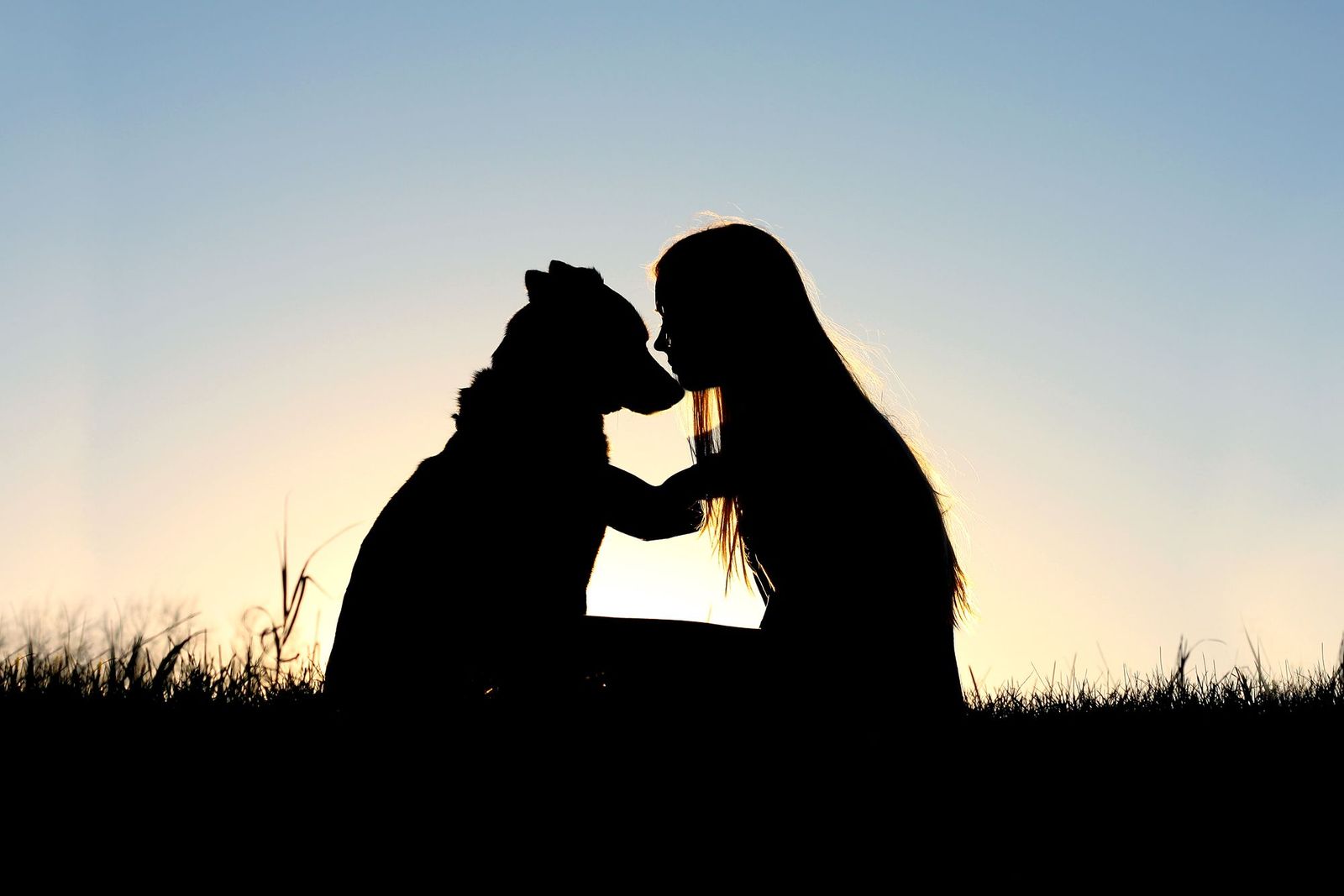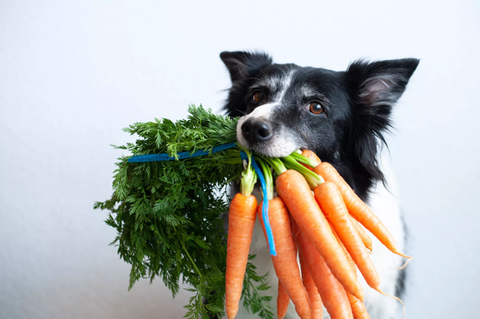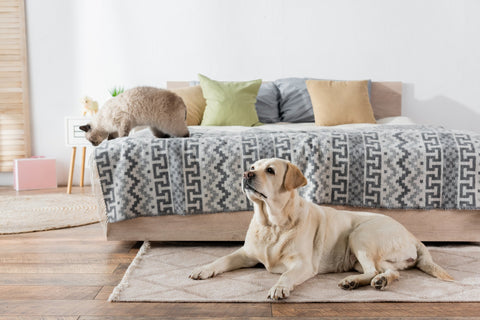The Pet Parents® Guide for First Time Dog Owners
Being a first time dog parent is fun and exciting, but at times it can be frustrating. Having a pet dog for the first time is a huge responsibility. You much be able to invest a significant amount of time, patience and commitment when bringing home a new dog. First time dog parents who don't do proper research may find themselves having difficulties raising their furbaby.
To prevent yourself from being underprepared, we have created a first time dog ownership guide. We cover some of the most important things to know as a first time dog parent, from researching breeds and puppy development stages to a new dog shopping list. This guide will help you prepare and understand what life may look like with a new furbaby.
Most pet parents take in dogs because they have fallen in love with those adorable puppy eyes and energy that seems to be a lot of fun. Later, they might feel that everything is just too much to keep up with, as sometimes, owning a dog requires a lifestyle change. Whether or not your new dog is a puppy or already a grown-up one, there will always be adjustments. However, you can make these adjustments as seamless as possible so you can spend more time enjoying your dog’s company and less time stressing over what you could be doing wrong.
Most pet parents end up bringing home a dog because they have fallen in love with their adorable eyes and energy. While they are adorable, they also require a lot of work, so it's really important to make sure you are completely ready when the time comes. For the most part, owning a dog requires some lifestyle changes - regardless of it being a puppy or an adult dog.
Prepare in Advance and Be Patient
Bringing a new dog home is extremely exciting for you! But keep in mind, most dogs are scared when brought into a new home. Some may even act aloof, indifferent, and may exhibit signs of stress or fear until they get used to their new home environment.
When meeting your dog for the first time, allow them space and time to adjust. We know they are adorable, and how much you want to snuggle up to them, but some dogs need time to feel comfortable. Some dogs may begin to feel at home within a matter of days, while others may take several months to adjust. Adult dogs frequently require more adjustment time, particularly if the dog was in a shelter for a long time or has any past trauma.
This is why it's important to set up your home and plan for everything before your new dog arrives home. Preparing in advance will help both of you get off to a great start in bringing a new dog home.
Learn About Puppy Development Stages

There are a lot of things you should know about puppies and their development stages to be able to raise them well. These puppy development stages include:
- Neonatal stage (from birth to two weeks): Puppies are born still unable to see and hear, and have limited movements. During the first puppy development stage, the pups rely greatly on their mother.
- Transitional stage (from two to four weeks): Senses will begin to heighten up as ears and eyes slowly open.
- Socialization and vaccination (from three to 16 weeks): Pups will get more involved in active plays with mom and the rest of the litter; this is also where vaccination begins as according to the American Kennel Club. By the time puppies go to their new homes, they should have already been vaccinated for distemper, parvovirus, and parainfluenza.
- Social scale (from four to six months): This is where pups will go through a lot of puppy developmental milestones, like teeth falling out.
- Adolescent stage (from six to twelve months): The adolescent stage is where pups may become sexually mature. Their urge to explore more of the world strengthens.
Socialization, vaccinations, and training are just some of the many things you must prepare for. To be honest, caring for a puppy may feel like a full-time job and can be exhausting, no matter which of the puppy development stages they are in. One must-have you should consider having ready is Gnawtlers®. Split elk Gnawtlers® are elk antler chews that will greatly soothe your teething pup and are softer for puppy teeth than whole elk or whole deer chews. Gnawtlers® come from naturally shed antlers. They do not splinter so easily and come in different varieties to cater to your pup’s chewing personality.
Do Your Breed Research
Wether you are purchasing a puppy from a reputable breeder or adopting from a shelter, it is an essential new dog parent tip to know what to expect when bringing home your dog. You might be wondering what are the best dog breeds for first time dog parents. The answer is that the best first time dog breed for you will depends greatly on your lifestyle. According to AKC, certain dog breeds are well-suited for families, like Labrador Retrievers, Beagles, Irish Setters, Collies, Golden Retrievers, and Newfoundlands. However, if you live in an apartment, you may want to consider an Affenpinscher, Cocker Spaniel, Greyhound, or Japanese Spitz as your first time dog parent breeds. Dogs have strong instincts and will need fulfillment, so make sure that you look into which breeds will best suit your lifestyle before taking on more than you can handle. To help you determine what dog breeds might be compatible, you can take this dog breed quiz.
When adopting from a shelter, you may not always know the exact breed of your dog. However, shelter staff can generally guess at a broader classification, hounds for example, and provide some guidance based on their experiences with the dog. This will help you better prepare for your furbaby’s fulfillment needs before bringing a new dog home. Some other things you might want to consider when looking at breeds are energy levels, shedding, grooming requirements, and size. If you are are looking for a calmer dog as a first time dog parent, you may want to consider adopting a senior dog. You can learn more about adopting a dog here.
Master the Basics of Dog Care
Throwing in some food and water in your furbaby’s bowls sounds pretty easy, but it definitely takes more effort. Dog care is so much more than just feeding your dog and can even present a few challenges. At the very least, according to The Spruce Pets, every dog needs proper nutrition, safe shelter, physical care, and social interaction. When you can provide all the basics, you are giving your dog the best possible life they can have.

"Your dog’s diet and nutrition are the foundation of their health. Knowing your dog’s current situation will help you make better decisions for their nutrition."
Along with proper nutrition, make sure that you are well-versed in their grooming requirements. Wether you will be grooming your dog yourself, or taking them to the groomer, you will need to know some basics. For example, certain dogs may need brushed every day, while others may only need brushed about once per week, depending on coat type. Nail clipping and teeth brushing will need done on a regular schedule to keep your furbaby feeling their best.
Look for a Great Veterinarian
This is an item on every new dog checklist. Your dog deserves only the best vet in town. After coming home, the vet will be your first stop. They will perform different checks on your dog to determine their current health condition and potentially test to see if they have any underlying health problems.
Your vet will be able to provide the essential dog vaccinations, like rabies vaccines, and advise you on a dog vaccine schedule for your new dog. Depending on the age and condition of your dog, they will develop a dog vaccine schedule with you to ensure the best protection for your dog moving forward.
You must find a great veterinarian as they will be the one who’ll look after your dog’s health, educate you, and guide you throughout your pet parenthood. Your vet can provide advice on the right time to spay or neuter, the benefits of microchipping, and any general health topics you might have. Basically, you and your vet will make a team in making sure your dog gets to live a healthy life.
Invest in High-Quality Dog Supplies
Your dog deserves only the best, safest pet supplies there are on their new dog shopping list. If you’re wondering what to buy for your first time dog parent supplies, most experienced pet parents will agree to invest in high-quality items. Reusable products may seem expensive in the beginning, but these items last much longer than disposable ones, saving you money in the not so long run. Carefully go through different brands to identify what should go into your new dog shopping list . Here’s what we recommend for your new dog shopping list:
- Pawtect® Pads: Best-in-class absorption and odor control. Pawtect® Pads are made with WickQuick® proprietary fabric blend quickly wicks and hold more liquid per square inch than the other options on the market. These are best used in house training, as a crate liner, as furniture protection, as whelping pads, and to be placed under food bowls, water bowls, litter boxes, etc.
- An adjustable collar with a name tag: If you are bringing home a puppy or young dog, it is a good idea to get an adjustable collar that can grow with your new dog. Be sure to get a name tag with a contact phone number secured to the collar, so that you are prepared in case of an emergency situation or incident.
- Cleaning Supplies: It is best to be prepared for potential accidents. Even adult dogs who are potty trained may have accidents when moving into a new home while they adjust to their new environment. For that reason, it is best to have an enzymatic cleaner on hand to clean up easily.
- Pawtect® Blankets: Waterproof blankets made with the softest and comfiest faux fur fabric. These help to provide comfort to your dog and protect your furniture from drool, accidents, and more.
- A Suitable Crate: If you are planning to crate train your dog, it is important to have the crate ready and inviting when they come home. There are many different crate styles you can choose from to fit the decor of your home and traveling needs. Make sure that your dog can comfortably stand, turn around, and lay down in their crate.
- Gnawtlers®: Specially selected Grade A premium elk and deer antler chews that are jam-packed with calcium, phosphorus, manganese, and zinc. With three different types of antlers for different chew personalities, these are great for any age or size dog you are bringing home.
- Pet Parents® Dog Diapers: Premium, washable dog diapers made for both male and female dogs designed to prevent accidents from turning into messes while your dog masters potty training in their new home. These dog diapers contain a hook & loop system to help support many dog body types while offering a leakproof, comfy fit.
- Training Treats: Your new dog will more than likely need some training. Training treats are small, generally low calorie treats that you can use with your new furbaby to teach command and tricks without overloading on calories.
- Forager™ Mats: These snuffle mats for dogs act as a slow-feeder dog bowl to help slow down meal time and prevent bloat. Made with SoftSnout™ material, your pet can forage for their food without any discomfort or abrasions to their nose.

Provide Optimum Dog Nutrition
With the many dog food and supplements readily available in the market, it’s confusing what to choose for the best dog nutrition. The best thing you can do? Get to know what your furbaby needs. Is your furbaby underweight? Overweight? Pregnant? In their senior years? Make sure the diet you give them is healthy and will be able to provide all their nutritional needs. Additionally, you can give them supplements for added nutrition.
Supplements, like Pet Parents® SoftSupps®, are available in many variants addressing different issues in your furbaby. Pet Parents® SoftSupps® help deal with allergies, bladder health, stress, anxiety, hip & joint health, skin & coat health, and many more. These supplements are made with Branded ‘Super Ingredients’ that go through a proprietary process for optimal dog nutrition. These ingredients build efficacy and are more effective than the commonly used ones.
As a first time dog parent, it is also better if you prepare yourself for some health problems expected to come up in your dog’s lifetime. Some may be easy to deal with, but some may also be medical emergencies (we hope not!). Your dog’s diet and nutrition are the foundation of their health. Knowing your dog’s current situation will help you make better decisions for their nutrition.
Prepare for Dog Training
Every dog requires training. Dog training not only helps you control your dog but will also provide your furbaby with a sense of structure. Training can also be about anything. This can be training your dog to follow a certain schedule every day, training them to eat only at certain times (goes well with weight management for obese dogs), training them to learn new tricks & commands, training them to curb their undesirable behaviors (like play-biting and excessive barking), training them not to get anxious when you go to work, and potty training! You can participate in dog training classes, socialization classes, or private dog training lessons depending on what works best for you and your dog.
Also, prepare yourself for some behavior problems, like excessive chewing, ingesting non-food items, inappropriate peeing & pooping. It's always a good idea to be well-informed about the different behavior problems before they become issues for you and your dog.
Being a first time dog parent means accepting responsibility for your dog's actions and being committed to giving your dog the healthier and happier life they deserve. Use this first time dog owner checklist to better prepare for your new dog joining your family. Follow this first time dog parenting guide to feel better prepared to bring home your new furbaby and raise them to be happy, well-adjusted dogs.
"Supplements, like Pet Parents® SoftSupps®, are available in many variants addressing different issues in your furbaby."










